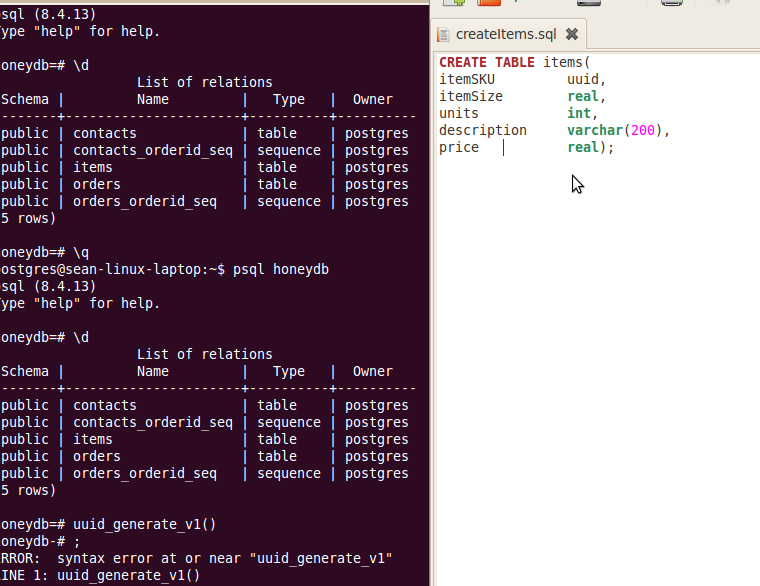
- CHROME EXTENSION UUID GENERATOR POSTGRES DRIVER
- CHROME EXTENSION UUID GENERATOR POSTGRES FULL
- CHROME EXTENSION UUID GENERATOR POSTGRES CODE
- CHROME EXTENSION UUID GENERATOR POSTGRES FREE
Running this command creates a new Docker container based on the official postgres Docker image. To get started, let's use Docker to spin up a new PostgreSQL database on the local machine. Installation and Setup # Setting Up the PostgreSQL Database #
CHROME EXTENSION UUID GENERATOR POSTGRES FULL
deno-postgres provides abstractions for features and operations that allow you to unleash the full potential of PostgreSQL: connection pools, prepared statements, transactions and typed queries.Įxecute queries securely with prepared statements. The API and underlying implementation of deno-postgres is based on two popular PostgreSQL drivers: node-postgres (coincidentally) and pq, a Go PostgreSQL driver.
CHROME EXTENSION UUID GENERATOR POSTGRES DRIVER
If you visit the deno.land/x website and search postgres, then you will come across deno-postgres, a lightweight PostgreSQL driver that was developed specifically for Deno. A popular PostgreSQL client for Node.js projects is node-postgres. Since Deno was built as an improved, alternative V8 runtime to Node.js, Deno projects can use both the third-party modules developed specifically to work with Deno and the many third-party packages that exist in the npm ecosystem. Natively support web standard APIs (e.g., fetch).Ĭan process large volumes of data with ACID compliant, concurrent transactions and extensions like PostGIS. Treat TypeScript as a first-class language. You must pass certain security flags to Deno to explicitly grant permissions like network access ( -allow-net). When you bring together two modern, open-source technologies, Deno and PostgreSQL, you can build production-grade web applications that. If you are (or become) a Covered Entity or Business Associate under HIPAA, you may not use Google Analytics for any purpose or in any manner involving Protected Health Information.Most modern web applications rely on a relational database management system (RDBMS) to store and retrieve troves of related data. Unless otherwise specified in writing by Google, Google does not intend uses of Google Analytics to create obligations under the Health Insurance Portability and Accountability Act, as amended, (“HIPAA”), and makes no representations that Google Analytics satisfies HIPAA requirements. If you use AdSense, read and follow the Best practices to avoid sending PII in the AdSense help center.
CHROME EXTENSION UUID GENERATOR POSTGRES CODE
In some instances, such as in the UK, zip code can map to a single residence and thus cannot be passed to Analytics. “Fine-grained location” information for Analytics is defined as any area less than 1 square mile, including any lat/long data. If collecting geolocation info, ensure it is not GPS or fine-grained location information, as this could lead to reasonable inference of the individual.

To learn more, read Best practices to avoid sending PII. There are additional strategies to avoid sending PII through URLs. For example, to change the title to "New Title": Similarly, you can alter the page title before it gets sent to Analytics. For example, to alter the URL to "/example?a=b":

You can add analytics.js code to change the URL before it gets sent to Analytics. If there is any possibility of your URLs, URL parameters, or titles containing PII, you'll need to remove it.
CHROME EXTENSION UUID GENERATOR POSTGRES FREE
Both the URL path and parameters must be free of PII. PII is often inadvertently sent in these URLs and titles. The basic Analytics page tag collects the page URL and page title of each page that is viewed. Before using User IDs, read the User ID guidelines.


 0 kommentar(er)
0 kommentar(er)
